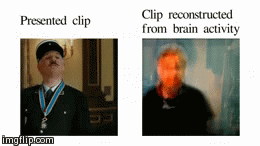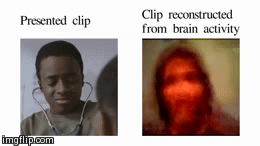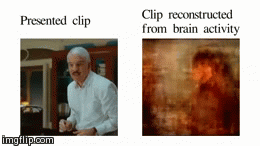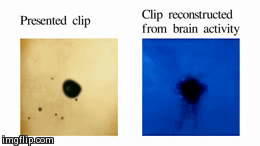Re: Das Gehirn
Verfasst: 25. April 2013, 20:29
Ich verbeuge mich vor dir Tarvoc 
aphilosophisch, apolitisch, areligiös, akünstlerisch, asexuell
https://wwwww.aktion23.com/fnorum/
National Geographic hat geschrieben:When Memories are Remembered, They Can Be Rewritten
It’s not often that scientists make people watch the first episode of 24 in the name of science. It’s even rarer that they pick Jack Bauer’s exploits because they wanted to show volunteers something “more true to life”. Then again, as Jason Chan dryly says, “Some of the earlier episodes were not as far-fetched as the later ones”.
Chan’s study is the latest to show how easy it is to disrupt our memories, and supplant what we think we know with misinformation. In this case, he and colleague Jessica LaPaglia from Iowa State University showed volunteers the pilot episode of 24 and then selectively rewrote some of their memories of the show’s events. For example, some of the volunteers came to believe that an assassin (Mandy!) knocked out a flight attendant with a stun gun, when she actually used a hypodermic syringe.
It wasn’t just a simple matter of saying Mandy used a stun gun. That wouldn’t have worked. Instead, Chan and LaPaglia fed their volunteers with false information immediately after they had actively remembered what they had seen. Then, and only then, did the new memories overwrite their old ones.
The trick relies on a quirk of memory that has come to light in recent years. I’ve written about it before:
Every time we bring back an old memory, we run the risk of changing it. It’s more like opening a document on a computer – the old information enters a surprisingly vulnerable state when it can be edited, overwritten, or even deleted. It takes a while for the memory to become strengthened anew, through a process called reconsolidation. Memories aren’t just written once, but every time we remember them.
This means, somewhat ironically, that the remembering something creates a critical window in which memories can be erased or manipulated. Many scientists have done this in rodents and humans using drugs or conflicting information. But these experiments usually manipulate single simple memories, such as a drug craving or a fearful association between a colour and an electric shock.
Chan and LaPaglia have now used the reconsolidation window to change declarative memories—facts and knowledge that we consciously recall. “We have people forming a very complex memory of a story that lasts 40-50 minutes and changing specific details within that larger context,” says Chan. “This is what’s new. It’s a pretty important step for demonstrating the fundamental importance [of reconsolidation] in humans.”
After showing the pilot episode of 24 to 146 volunteers, Chan and LaPaglia asked them to either play Tetris or answer memory-testing questions about the video. Twenty minutes later, they listened to a short audio recording that supposedly recapped the episode, but that secretly changed some details—for example, swapping Mandy’s syringe for a stun gun. Five minutes later, everyone took a final true-or-false test about what they had originally seen.
In this final test, the volunteers were worse at accurately recalling details that were changed in the audio recap, but only if they had previously answered questions that made them recall the video. Those who played Tetris were unaffected.
So, taking the quiz destabilised the volunteers’ memories of what they were quizzed on, paving the way for the false recap to mess with their knowledge. This worked even when volunteers correctly remembered what happened in the episode during the first quiz—the incorrect audio still changed what they thought they knew.
Through repetitions and variations of this basic experiment, Chan and LaPaglia showed that the effect lasts a long time, even if the final test followed the audio recap by a day rather than 5 minutes. But for the trick to work, the false information needs to come quickly and be very specific. If 48 hours passed between the first quiz and the audio recap, rather than 20 minutes, the original memories stay unchanged. And if the recap involved a different scenario—say, an assassin knocking out a flight attendant in the context of drug trafficking rather than terrorism—the new info never overwrote the original memory. This explains why we’re not constantly upsetting our old memories even though we’re constantly exposed to new information.
Chan and LaPaglia also suspect that people need to believe that the new information accurately represents the old set, and not if they consciously detect a factual discrepancy. “If they think there’s misleading information in here, they’ll be much less susceptible to that effect,” says Chan.
Other studies on reconsolidation have found similar results, but this one shows that memory manipulation isn’t limited to the simple products of basic conditioning, but also more complicated bits of knowledge. It supports the work of psychologists like Elizabeth Loftus, who have shown how easy it is to implant people with false memories.
It also fits with a growing body of evidence showing that, despite what people believe, eyewitness testimony is often seriously unreliable. “Say you’ve been questioned by an investigator and you recall the event,” says Chan. “In the next 15-20 minutes, you could run into another eyewitness or overhear investigators talking to each other. Some inaccurate information could update your memory.”
More positively, the study could have implications for treating conditions that involve unwanted memories, such as phobias or post-traumatic stress disorder (PTSD). As Chan and LaPaglia, “Humans are notoriously inept at suppressing unwanted thoughts.” If we try not to think about something, we usually end up thinking about it all the more. Instead, it may be more productive to actively remember what’s troubling us and reinterpret that in a new light, relying on reconsolidation to remake the old memories in a less disqueting way.
Acceptance and commitment therapies for PTSD work along similar lines, but it’s often assumed that they help people to put the past behind them or to disconnect their experiences from negative feelings. But Chan and LaPaglia suggest that such techniques might actually be exploiting the reconsolidation effect to actually rewrite the past, rather than just severing our connections from it.
Reference: Chan & LaPaglia. 2013. Impairing existing declarative memory in humans by disrupting reconsolidation. PNAS http://dx.doi.org/10.1073/pnas.1218472110
PS: I love that reference 55 of this paper is “24 12:00 a.m.–1:00 a.m. [dvd]. Fox Television Studio, producer; 60 min, sound, color”. And reference 56 is “Neave P (2009) Tetris N-Blox (Tetris Holding, LLC, Hawaii).”





(via Ellis Dee)sixpencee hat geschrieben:5000 people were shown random YouTube videos. Scientists reconstructed the visual experience from brain activity.
Here is the video
If you want to know more, here is the paper
And here is their website

Wikipedia hat geschrieben:Hyperthymesia is a condition which leads people to be able to remember an abnormally large number of their life experiences in vivid detail.
American neurobiologists Elizabeth Parker, Larry Cahill, and James McGaugh (2006) identified two defining characteristics of hyperthymesia: spending an excessive amount of time thinking about one's past, and displaying an extraordinary ability to recall specific events from one's past. [...]
Individuals with hyperthymesia can recall much of their lives in near perfect detail, as well as public events that hold some personal significance to them. Those affected describe their memories as uncontrollable associations; when they encounter a date, they "see" a vivid depiction of that day in their heads. Recollection occurs without hesitation or conscious effort.
[...] This extensive and highly unusual memory does not derive from the use of mnemonic strategies; it is encoded involuntarily and retrieved automatically. Despite perhaps being able to remember the day of the week on which a particular date fell, hyperthymestics are not calendrical calculators, like some people with savant syndrome. Rather, hyperthymestic recall tends to be constrained to a person's lifetime and is believed to be a subconscious process.
[...] Hyperthymestic individuals appear to have poorer than average memory for arbitrary information. [...]
kottke.org hat geschrieben:The Remarkable Brain Waves of High Level Meditators
What’s going on in the brains of people who meditate? Anecdotal evidence suggests that meditation does something to people’s minds and bodies…quiets and calms them. In this video, Daniel Goleman reports on research done by his colleague Richard Davidson, a neuroscientist at the University of Wisconsin–Madison. Davidson brought a number of “Olympic level meditators” into his lab and hooked them up to a brain scanner. He found that the brains of these expert meditators have different brain wave patterns than the rest of us.
[BBvideo 640,390][/BBvideo]
Goleman and Davidson have written more about how meditation affects the mind and body in their book, Altered Traits.Perhaps the most remarkable findings in the Olympic level meditators has to do with what’s called a gamma wave. All of us get gamma for a very short period when we solve a problem we’ve been grappling with, even if it’s something that’s vexed us for months. We get about half second of gamma; it’s the strongest wave in the EEG spectrum. We get it when we bite into an apple or imagine biting into an apple, and for a brief period, a split-second, inputs from taste, sound, smell, vision, all of that come together in that imagined bite into the apple. But that lasts very short period in an ordinary EEG.
What was stunning was that the Olympic level meditators, these are people who have done up to 62,000 lifetime hours of meditation, their brainwave shows gamma very strong all the time as a lasting trait just no matter what they’re doing. It’s not a state effect, it’s not during their meditation alone, but it’s just their every day state of mind. We actually have no idea what that means experientially. Science has never seen it before.
There’s that pesky deliberate practice popping up again.Sweeping away common misconceptions and neuromythology to open readers’ eyes to the ways data has been distorted to sell mind-training methods, the authors demonstrate that beyond the pleasant states mental exercises can produce, the real payoffs are the lasting personality traits that can result. But short daily doses will not get us to the highest level of lasting positive change — even if we continue for years — without specific additions. More than sheer hours, we need smart practice, including crucial ingredients such as targeted feedback from a master teacher and a more spacious, less attached view of the self, all of which are missing in widespread versions of mind training.